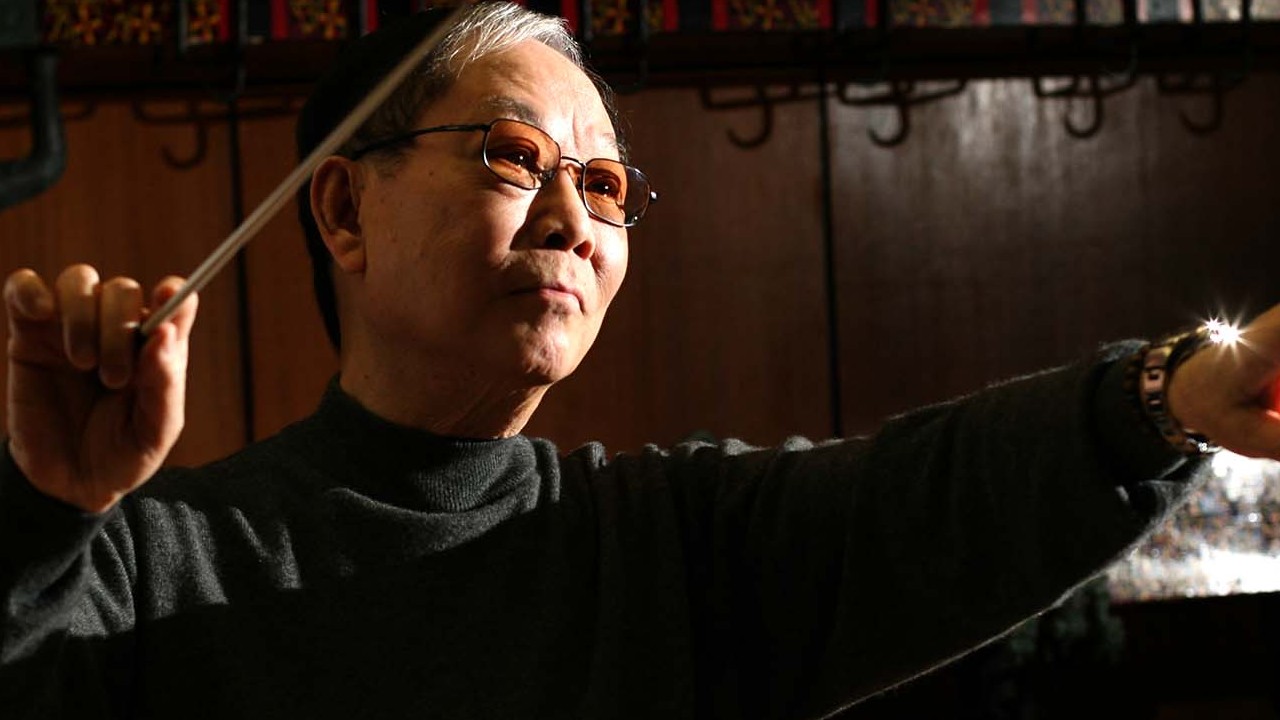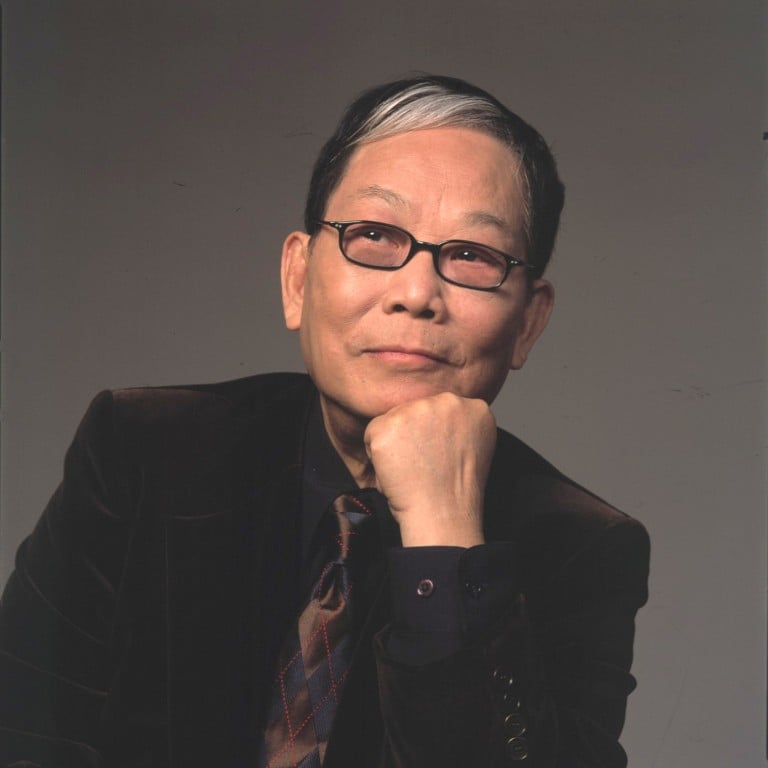
Tributes paid to ‘Hong Kong treasure’ Joseph Koo, Cantopop composer from the genre’s golden age, following his death aged 92
- Koo’s work is part of Hong Kong’s identity thanks to his 1,000-plus tracks for TV, including the Below the Lion Rock theme song and Enjoy Yourself Tonight song
- He penned hits for a galaxy of singers including Anita Mui and Leslie Cheung, and wrote the scores for Bruce Lee’s Fist of Fury and The Way of the Dragon
Joseph Koo Ka-fai, the Hong Kong composer synonymous with the golden age of Cantopop, has died in Vancouver, Canada, at the age of 92.
Koo, who died on January 3, was known for his soundtracks to Bruce Lee films, hit songs for a galaxy of pop stars including the late Anita Mui Yim-fong and Leslie Cheung Kwok-wing, advertising jingles and compositions for television shows.
“Hong Kong today has a huge wealth of musical talents. But what made Koo’s era so special was how his career coincided with the rise of local television, which meant that his music was listened to far and wide and well beyond the shores of Hong Kong,” said long-time friend and collaborator Mui Kwong-chiu, chairman of the Hong Kong Composers’ Guild and director of the Composers and Authors Society of Hong Kong.
“While his music background was in the Western music tradition, he pioneered a skilful fusion with Chinese rhythms that came to be known as a uniquely Hong Kong sound,” said Mui.
Koo and (James) Wong were both treasures of Hong Kong who contributed hugely to the local music scene
As talented as Koo was, it was when he paired up with the gregarious lyricist and talk-show host James Wong Jim that his music truly sang. Koo and Wong were the Simon & Garfunkel and the John Lennon and Paul McCartney of Cantopop songwriting.
His 1982 song “The Brave Chinese”, sung by actress and singer Liza Wang Ming-chun for the historical TV drama Love and Passion, became a hit in mainland China and helped create a new market for Cantopop there.
“Koo and Wong were both treasures of Hong Kong who contributed hugely to the local music scene. In the 1980s, when there were so many different kinds of singers, the two managed to create hits for so many of them, all in their own unique style,” said Liza Wang in a statement on January 4.
Koo was born in 1931 in Guangzhou, China, to a scholarly family. His father was an artist, and under his influence, both Koo and his elder sister, the singer Koo Mei, studied painting up until World War II.
The family moved to Hong Kong in 1948, where Koo Mei found work as a singer, eventually becoming a major recording artist and well-known actress. Influenced by her, Koo began to take an interest in music.
‘World’s most durable DJ’, Hong Kong’s ‘Uncle’ Ray Cordeiro, dies at 98
In 1961, he made a stunning debut as composer with “Dream”, a song in Mandarin he wrote for his sister to perform in the Shaw Brothers film Love Without End.
The siblings played relatively minor roles in the production. Koo Mei was the unseen singing voice for the film’s star Linda Lin Dai, who played the lead, and Koo’s “Dream” was a secondary track to the main theme song, composed by Wang Fu-Ling, the Shanghai-born Hong Kong composer behind many Mandarin movie theme songs of the time.
The success of the film became the launch pad of both their careers, and “Dream”, with its lively rhythm and upbeat lyrics that captured the mood of the early 1960s, remains a well-known and often performed tune to this day.
Then came Koo’s first chance to study music properly – on a scholarship and sponsored by the late Sir Run Run Shaw, he enrolled in the Berklee College of Music in Boston, in the United States.
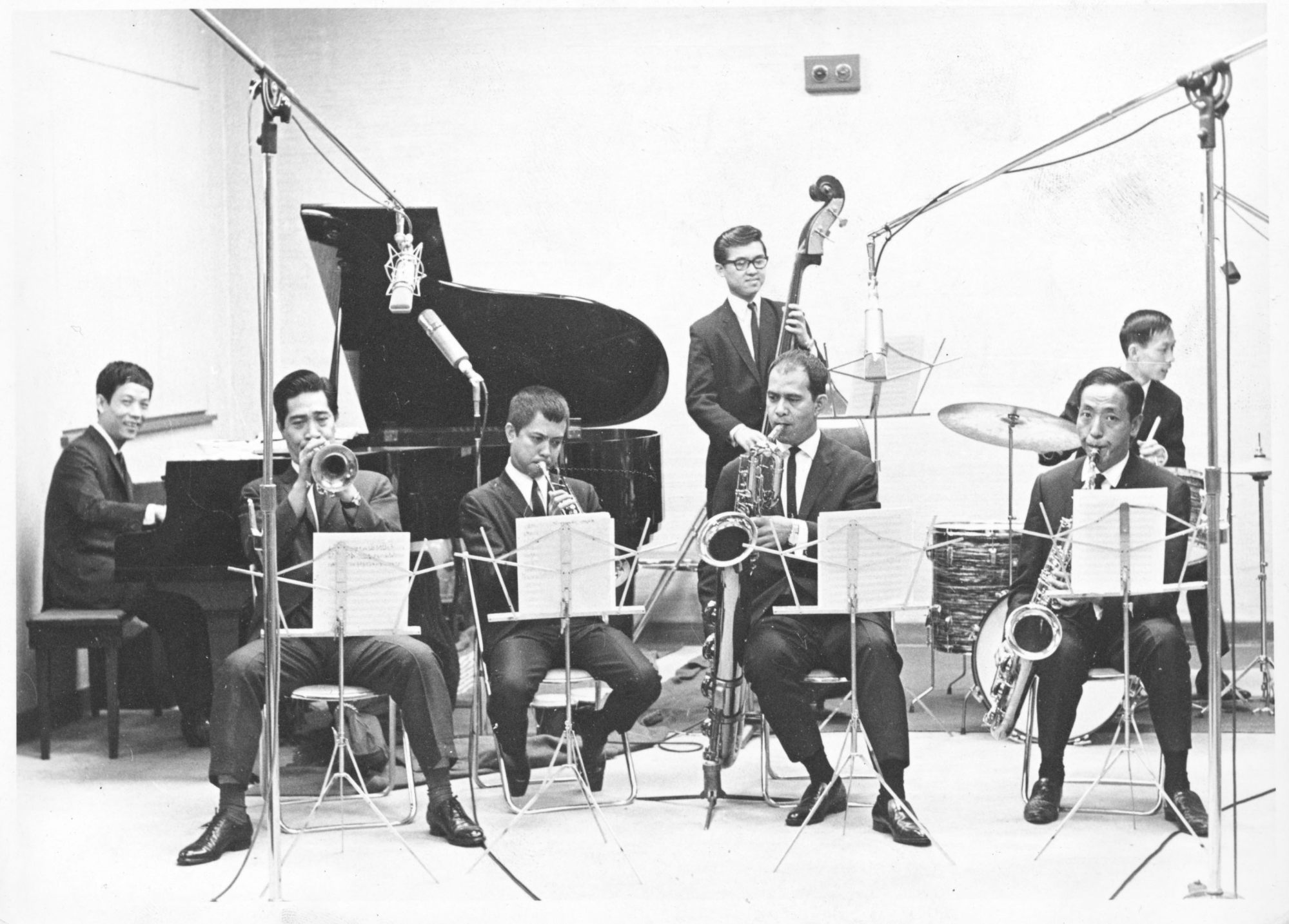
But it would be Cantonese-medium television that made Koo’s 1,000-plus compositions the beloved backing music to Hong Kong’s rise in the last decades of the 20th century.
In 1967, at the launch of Television Broadcasts Limited (TVB), Koo was appointed music director and band leader for the live-music accompaniment to the nightly variety show Enjoy Yourself Tonight.
Every episode of the show in its 27-year run would end with the cast – led for many years by the legendary host and actress Lydia Shum Tin-ha, mother of singer Joyce Cheng – singing Koo’s “Goodnight Song”.
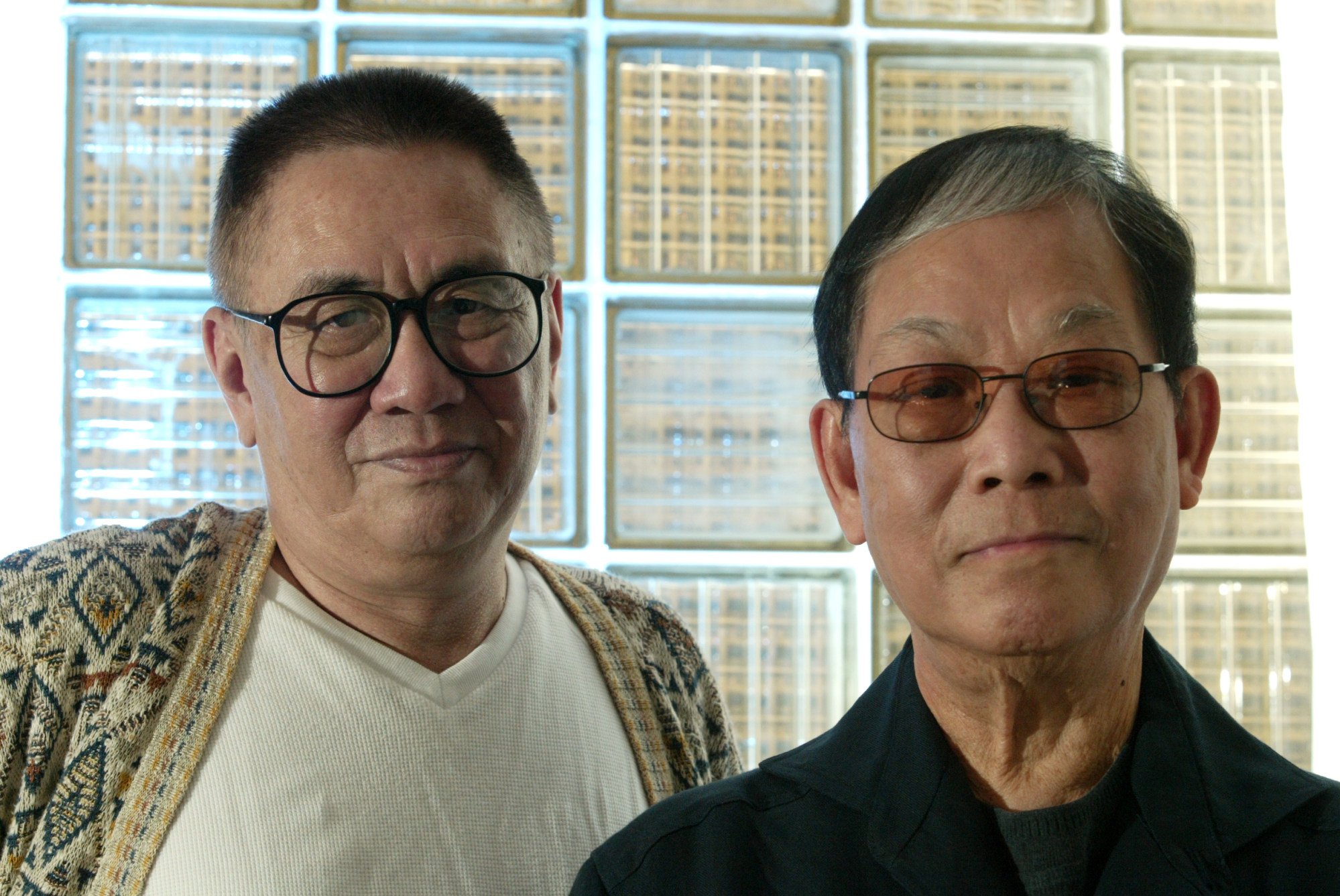
Wong, a Chinese literature graduate, first worked with Koo in the 1960s, but their partnership, which spawned around 200 hits up until the 1990s, really took off when Wong also joined TVB in 1978 as a lyricist.
Koo’s songs more or less plotted the development of Hong Kong from an aspirational but poor post-war economy to becoming an international financial centre in the 1980s and 1990s, Mui said.
In 1979, Koo composed the theme song for the Radio Television Hong Kong television series Below the Lion Rock. The song, sung originally by Roman Tam, with words by Wong, remains the city’s unofficial anthem today.
These were sung by the best-known divas of the time, including Sandra Lang, Susanna Kwan Kuk-ying and Frances Yip.
In 1982, Koo was appointed a Member of Order of the British Empire (MBE).
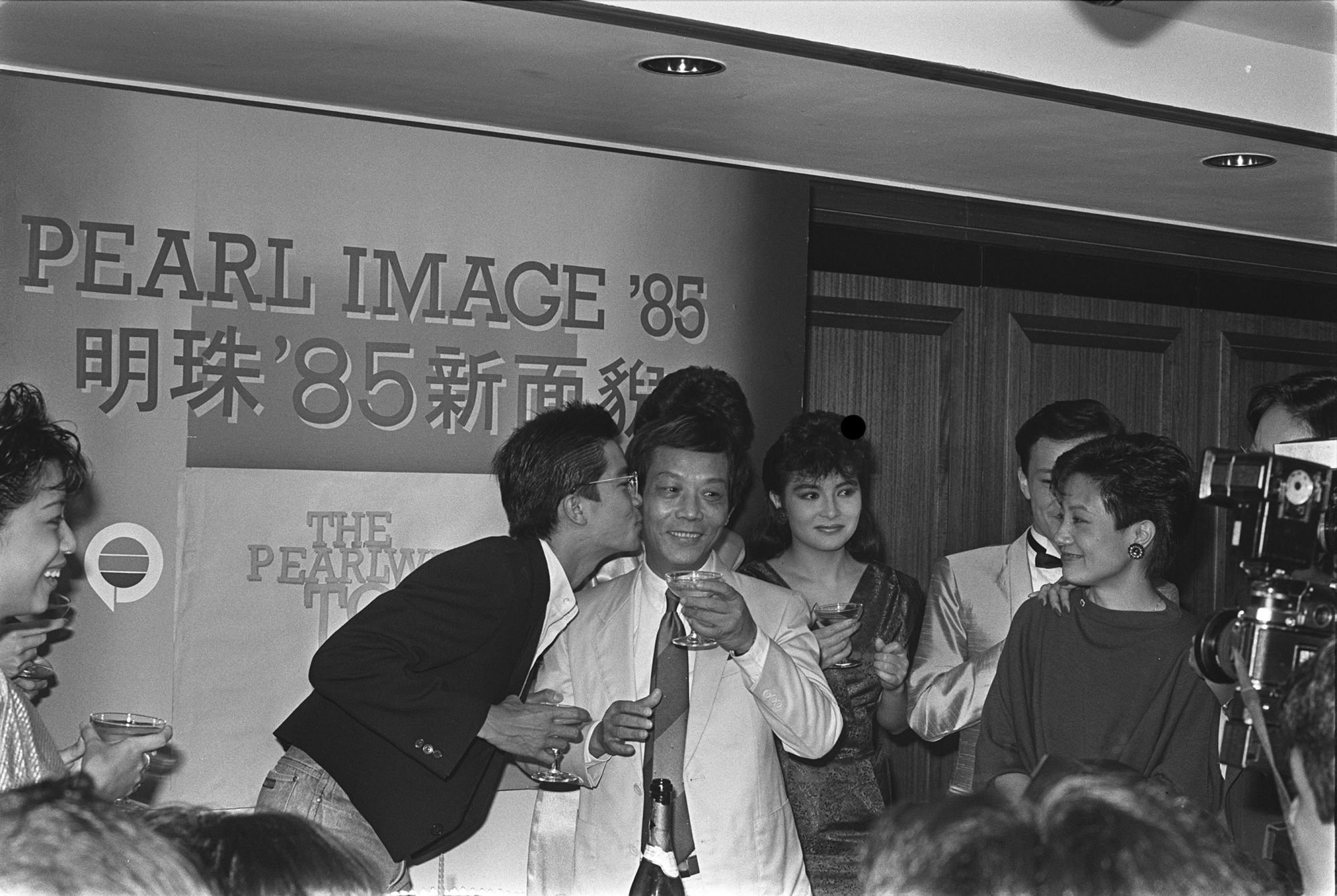
Koo was writing music at a time when Cantopop produced megastars who, along with Hong Kong’s television and film stars, represented the height of its soft power with their global following and massive record sales.
As Hong Kong became increasingly affluent, Koo wrote advertising jingles that became household tunes as local families watched television in the evenings.
Leonie Ki Man-fung, a non-executive director of New World Development Company with more than 40 years of experience in advertising and marketing, said Koo’s music helped create successful advertising campaigns for Vitasoy soy milk, Café de Coral fast food, Kjeldsens butter cookies, Hennessy V.S.O.P cognac, and many other brands.
“His contribution to Cantopop and advertising was incomparable. And he was so kind and humble. He really deserved our respect. May he rest in peace,” Ki said.
In the 1990s, Koo went to live in Canada but would return to Hong Kong regularly for special projects, including a popular series of concerts at the Hong Kong Coliseum with Wong, and conducting the Hong Kong Chinese Orchestra in concerts of his own music, and he remained a mentor to younger composers such as Alan Tsui Yat-kan.
In 2015, he was awarded a Gold Bauhinia Star by the Hong Kong government for his contribution to music.
In a statement, Kevin Yeung Yun-hung, Secretary for Culture, Sports and Tourism, said: “Koo Ka-fai’s works are timeless and always feel new. Over the years, he has accompanied the growth of Hong Kong people and enriched the lives of Chinese people around the world.
“His spirit and his immortal music have touched people’s hearts and will be handed down to future generations. We will always miss him.”


